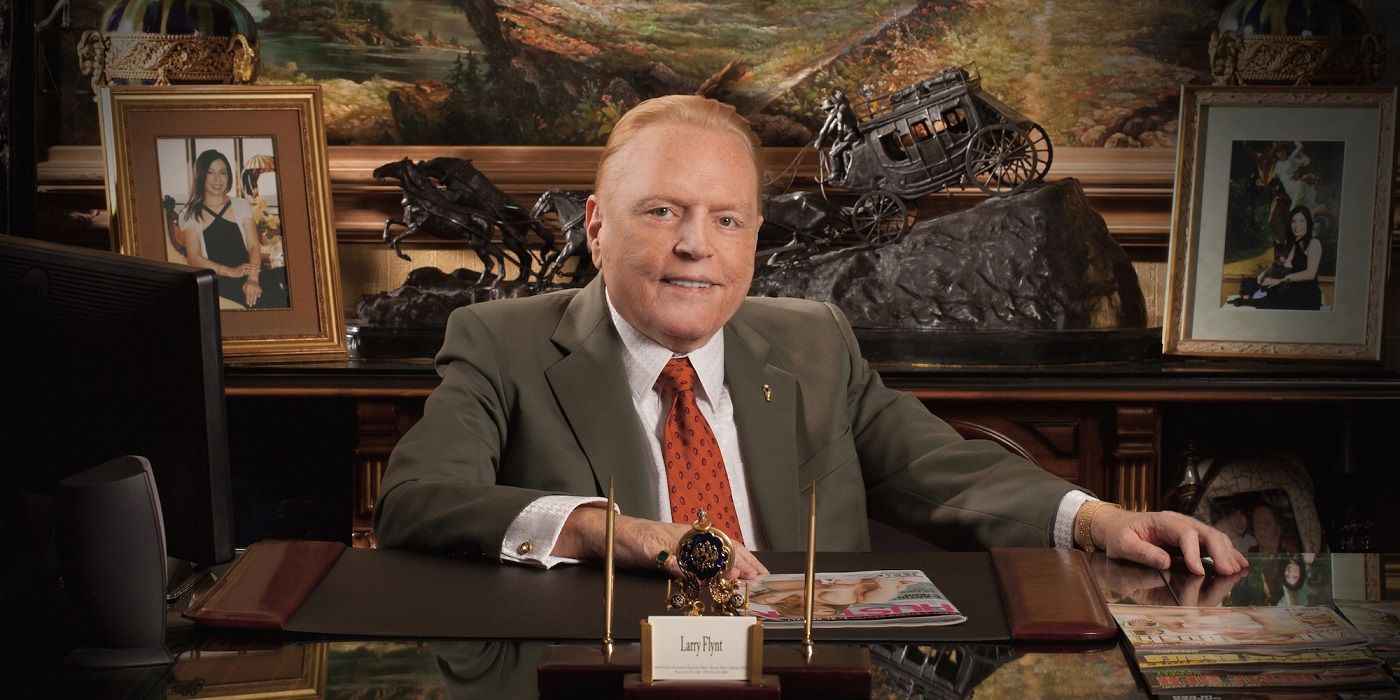
Larry Flynt, the founder of Hustler magazine who became a surprising spokesperson for the First Amendment, has died at the age of 78.
The controversial publisher was the defendant in a number of First Amendment-based cases that reached the Supreme Court of the United States, including two precedent-setting cases involving personal jurisdiction and First Amendment protections in parody.
Born in 1942, Flynt served in the United States Navy, being honorably discharged in 1964. A year later, he purchases his mother's bar in Dayton, Ohio. He successfully renovated the bar and was soon doing well enough that he opened two other bars in the state. He then opened up a fourth bar that set up as a go-go club, with dancing hostesses. It did well enough that, in 1968, he launched the Hustler Club, a go-go club where the dancing hostesses were topless. The Hustler Club soon spread throughout Ohio.
Flynt had always done a newsletter for his various Hustler Clubs called, appropriately enough, the Hustler Newsletter. It proved popular enough that in the early 1970s, with sales at his bars sagging, Flynt decided to turn the Hustler Newsletter into a national magazine, adding pornography into the mix. Hustler was soon selling so many copies that Flynt got out of the bar business and focused on publishing entirely.
Flynt was aggressive with the content of his magazines, pushing the boundaries of accepted levels of nudity. This, naturally, led to him being pursued by the government a number of times on obscenity charges. One of these obscenity cases went all the way to the Supreme Court.
One of the major Supreme Court cases involving Flynt was Keeton v. Hustler Magazine, a case involving an alleged defamatory article in Hustler about Penthouse publisher Bob Guccione's then-girlfriend, Kathy Keeton. The issue is that Keeton's libel suit missed the statute of limitations in Ohio, so she tried suing in New Hampshire, instead, which had a longer statute of limitations for libel. The Supreme Court ruled that Keeton was allowed to sue in any state that Hustler was sold. A New Hampshire jury than gave Keeton a $2 million judgment.
The other notable Supreme Court case was Hustler Magazine v. Falwell, where televangelist Jerry Falwell Sr. sued Flynt over a parody in Hustler that suggested Falwell's first sexual experience was with his own mother. Flynt counter-sued for copyright infringement, since Falwell used the ad for fundraising. Falwell lost his libel suit, but won for the intentional infliction of emotional distress. The Supreme Court, though, later ruled that public figures like Falwell were ineligible to claim intentional infliction of emotional distress over parodies.
In 1978, while defending himself in another obscenity case in Florida, Flynt and his lawyer were fired upon by a would-be assassin. Flynt survived his gunshot wounds, but he remained paralyzed for the rest of his life.
Flynt grew his Hustler empire into other magazines, videos and pay-per-view TV channels.
Flynt is survived by his fifth wife, Elizabeth Berrios, and four of his children.
0 Comments